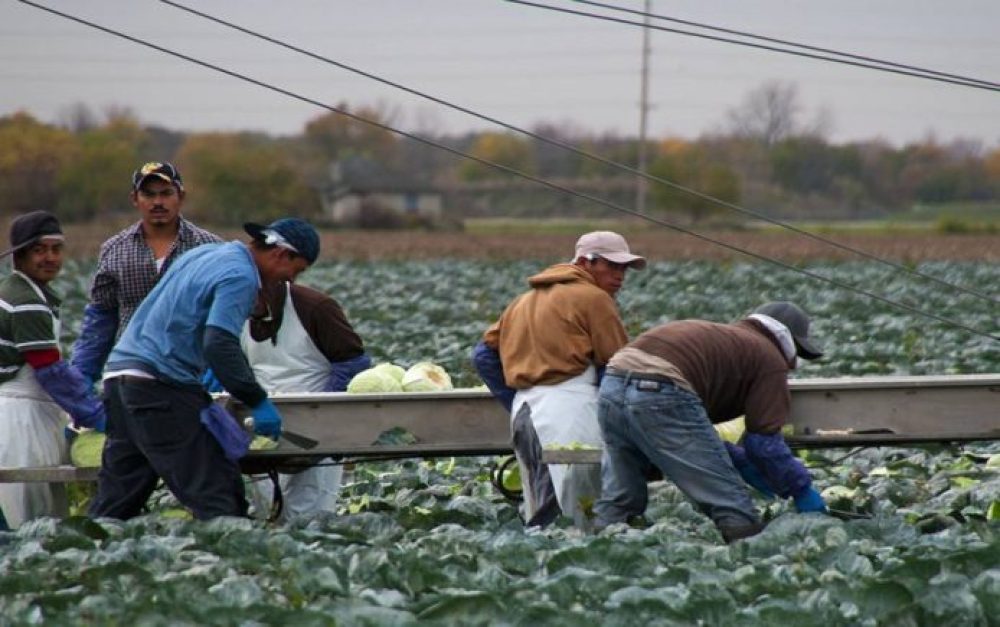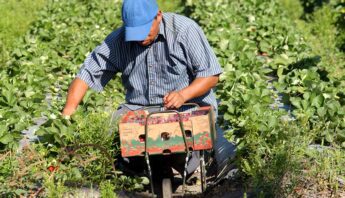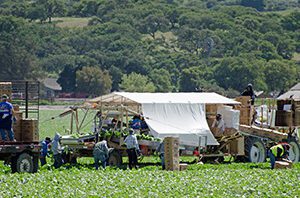In October 2015, we celebrated with farmworker unions and advocates when a much-improved Worker Protection Standard (WPS) was approved. The WPS is the only federal rule that protects farmworkers from exposure to hazardous pesticides on the job, and hadn’t been updated in more than 20 years.
Not surprisingly, the Environmental Protection Agency (EPA) recently announced that it is planning to put the new rules on hold.
Rolling back commonsense safeguards
The WPS covers all workers and pesticide handlers who are exposed to pesticides in agriculture. In a December 2017 Federal Register notice, EPA announced its intent to reconsider the following protections for hardworking farmworkers across the country:
- The minimum age requirement which prohibits children under 18 years old from mixing, loading and applying pesticides
- The right of a farmworker to designate a representative who can request pesticide application and hazard information on their behalf.
- The “application exclusion zone” (AEZ) which requires a 25-100 foot buffer zone between the application site and any worker or bystander (depending on the application method.)
These are commonsense protections that prevent children from handling pesticides, facilitate farmworker access to information about the pesticides they are exposed to, and prevent workers and bystanders from being sprayed or drifted on during pesticide applications.
Children should NOT apply hazardous pesticides
Working with pesticides is not an appropriate job for minors, period. Because their bodies are still developing, high levels of exposure to pesticides can have life-long health effects. A 1993 study by the National Research Council concluded that “the toxicity of pesticides can potentially be influenced by the immaturity of biochemical and physiological functions and body composition of developing children and adolescents.”
In other words, these develping systems are vulnerable.
The brain and reproductive system in particular undergo significant development during the teen years, and many pesticides are highly toxic to these systems. Exposure to pesticides can also increase risk of chronic diseases such as cancer and Parkinson’s disease.
In addition to the known health risks of pesticide exposure, studies have shown that teens perceive themselves as less vulnerable to harm, and therefore do not follow the same safety precautions as adults — even when they have received the same training. Pesticide poisoning surveillance data show that youth are more likely than adults to be injured by pesticides on the job.
Urge your senators to take a stand
Farmworkers, advocates, EPA staff and former Administrator Gina McCarthy finally got the WPS improvements to the finish line in 2015, and we must protect these hard-won gains.
Senators Udall, Harris and Blumenthal are asking their colleagues to join them in urging EPA to keep the new rules in place, to ensure the nation’s two million farmworkers have the protections they need and deserve. Eight other senators have signed on so far.
Ask your senators to sign the “Dear Colleague” letter too. As this video from our friends at Toxic Free North Carolina shows, stronger rules are long overdue.
Photo: Bob Jagendorf | Flickr








